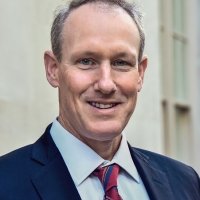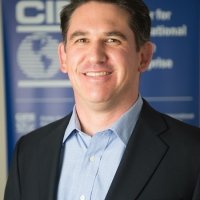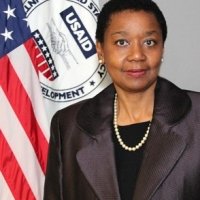The Workforce Challenge to MENA Youth
The Middle East is experiencing a renewed wave of unrest, but what are the fundamental economic and social undercurrents driving people into the streets? Join us and our expert panel to discuss the intersecting challenges facing Middle Eastern youth: a growing youth bulge, chronic unemployment, outdated education models, impeded business growth, and the impacts of regional conflict. Furthermore, what are the solutions that policymakers are exploring? Our panel convenes experts and practitioners that work in education, entrepreneurship, and business development to explore the potential for more robust worker preparation and job exploration in the region.
This event is part of a discussion series led by the Middle East and North Africa Workforce Development Initiative, a new research initiative at the Wilson Center that explores the current and projected challenges facing the region in developing the workforce and implications for peace and stability.
Selected Quotes
Andrew Baird
“Andre Azoulay in Morocco is advisor to the king, advisor to two kings. I had lunch with him recently and I said where does this (workforce development) rank in Morocco’s priorities and he said: “This is the only thing that matters right now. If we don’t get this right, nothing else matters.”
“Ultimately, EFE (Education for Employment) fills a role that we shouldn’t need to fill. We’re kind of exercising this labor market intermediation function, matching this demand---the Tunisia study is one that got a lot of attention, the 708,000 jobs that are unfilled... and again, that repeats everywhere. Yet, you have side by side this high unemployment, so bridging that gap. So our kind of dual track that we work on is systems change, and we believe that the focus really has to be on the educational system.”
“One of the biggest challenges… is keeping skills relevant over time, and the pace of change as we all know, is accelerating. I was at the World Economic Forum meeting, the regional one in Jordan …. and one of the themes was talking about that accelerated pace of change, and the shelf life of education in many areas being five years or less. So how do you develop the systems where people will continually get the kinds of skills and education that they need to remain relevant in the sectors that they are working in.”
Mara Kronenfeld
“The number one need in the region is job creation…there just simply aren’t enough jobs to employ the huge numbers of entrants every year into the job market. Jordan alone, we need 57 thousand jobs to employ everybody who needs a job. I would say, one of the things that we have been thinking about at IYF is perhaps an even more important misalignment, one that is maybe talked about less: the gap between expectations of young people today and the reality of what is in front of them.”
“There is an issue of compliance in all of these countries, and particularly I am thinking of Jordan and Morocco where we have done a lot of work recently. How do we make sure that the jobs young people are getting are quality jobs, that they’re formalized, that young people are getting social security, getting health insurance, that their working hours are reasonable, that the working conditions are youth-friendly.”
“A key part of what we do is about systems. We can’t get to scale, we can’t achieve sustainable change unless we are engaging those education and training systems that are going to improve the lives of young people at scale and for the future. Morocco is a place where we have been able to achieve some systems work, also through the integration of effective life skills training into the primary schools, middle schools, and high schools in several regions of Morocco, and actually making sure that life skills are an integral part of academic training. We have seen results which have reduced dropouts, school delinquency, and also improved grade point average through that integration. ”
Gregory J. Simpson
“There is a temptation to think in terms of a lack of resources when we look at some of these issues. A temptation to think well, 'if we just put more money, if we just put more investment, if we just put more training.' But the truth is there are structural issues that are going to mean even that the additional money, the additional investment, the additional training is not going to have the impact that we’re seeking.”
“And just to put it in perspective a little bit, Denise mentioned that SMEs are the engine of job creation in MENA and that’s true, and need to be more of an engine for job creation. But in fact, SMEs are the engine for job creation everywhere. Looking at the U.S. economy, small business is responsible for two-thirds of job creation in the U.S. economy. And not just small firms, but new firms. Between 1980 and 2005, firms less than five years old were responsible for nearly all net job creation in the United States.”
"When it comes to access to finance, it’s not 'we need foreign investment' or even government investment, it’s 'we need the banking sector to be modernized and liberalized so that landing flows the way it ought to.'"
Denise Lamaute
“WEF found the top economic and governance risk to the MENA region were: 1. Energy price shocks, and 2. Unemployment, behind terrorist attacks in third place. Thus our topic today--workforce development and employment..and may I add, female employment is timely. Regarding women in the MENA region, only 16% of working age women employed, compared to 46% globally. 84% of women in the MENA region are outside the labor force.”
"USAID’s highest priority is the journey to self-reliance….Namely, it is supporting our partner countries on the journey to self-reliance to eventually solve their own development challenges without foreign assistance. Our second highest priority is private sector engagement. Inclusive, private-sector-led development."
Photo Credit: Shutterstock.com
Moderator

Panelists




Hosted By

The MENA Workforce Development Initiative
The Middle East and North Africa Workforce Development Initiative (MENA-WDI) aims to assess both current and projected challenges facing the region in developing the workforce and the implications for peace and stability. Read more


Middle East Program
The Wilson Center’s Middle East Program serves as a crucial resource for the policymaking community and beyond, providing analyses and research that helps inform US foreign policymaking, stimulates public debate, and expands knowledge about issues in the wider Middle East and North Africa (MENA) region. Read more
